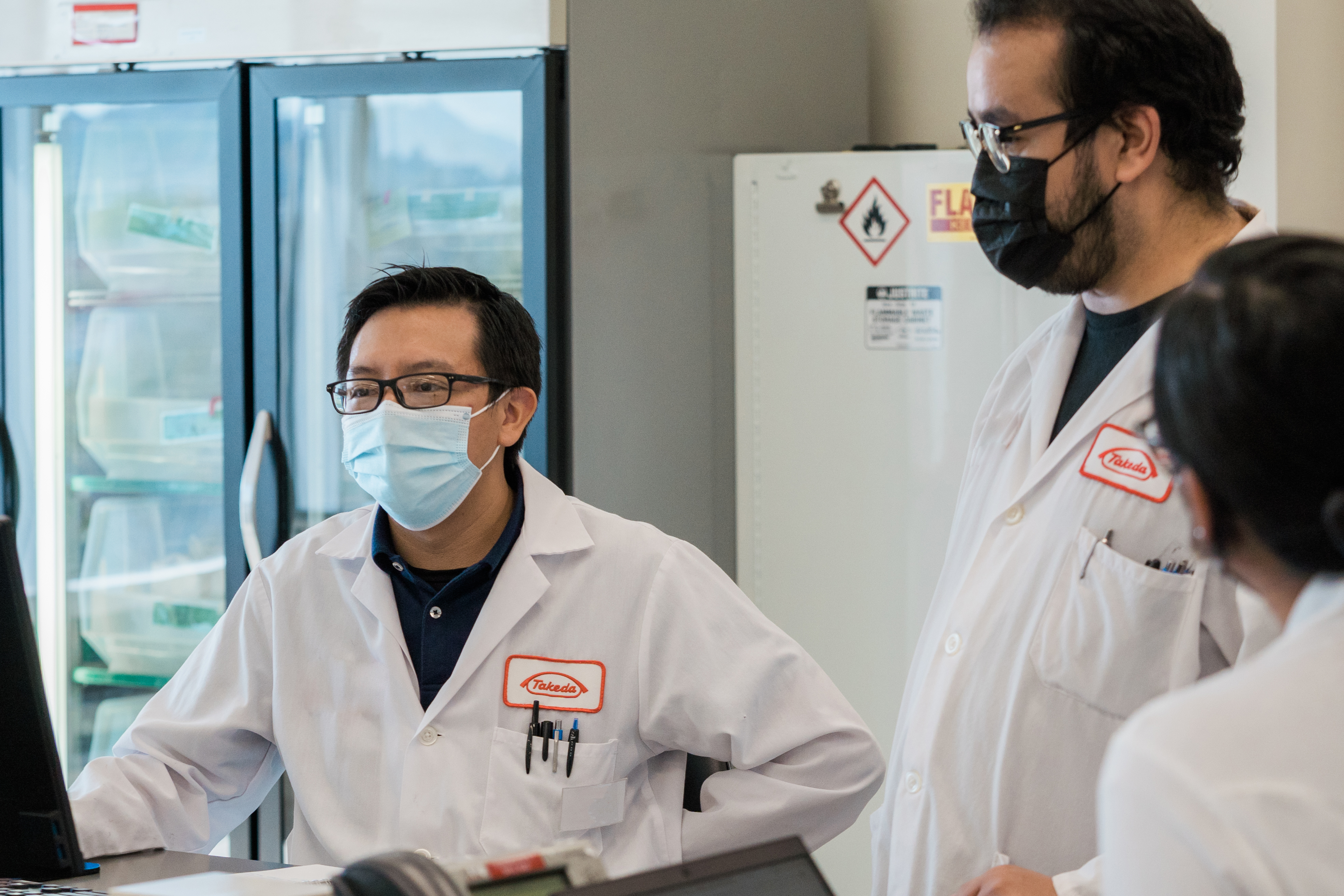
Areas of Focus
Oncology

Rare Diseases

Takeda aspires to transform the treatment of rare diseases in immunology, hematology, metabolic and lysosomal storage disorders. These rare genetic and metabolic diseases can have symptoms that vary widely and progress very differently from person to person, which means that people affected by these diseases are frequently misdiagnosed.
We are a leader in rare hematology with the longest heritage and market-leading hemophilia portfolio, backed by established safety and efficacy profiles with decades of real-world experience. We have more than 70 years driving innovation for patients and a broad portfolio of potential treatment options across hemophilia indications. Together with the hematology community, we are raising expectations for the future, including earlier diagnosis, earlier and full protection against bleeds, and more personalized
Gastroenterology

Gastrointestinal (GI) diseases can be complex, debilitating, and life-changing. For more than 30 years, Takeda and our collaboration partners have focused on improving the lives of patients through the delivery of innovative medicines and dedicated patient disease support programs.
We believe that no gastrointestinal (GI) disease that is life-limiting to patients should remain unnoticed or untreated. Together with researchers, patient groups and more, Takeda is working to advance scientific research and clinical medicine and will continue our search for better disease management for all those affected by GI and liver diseases.
The following disease areas serve as Takeda’s core research focus in gastroenterology:
GI inflammation including advancement in inflammatory bowel diseases (ulcerative colitis and Crohn’s disease), and their associated complications such as perianal fistulas, short bowel syndrome and intestinal failure. This focus area also includes celiac disease and other gastrointestinal inflammatory diseases.
GI motility including gastroparesis, nausea and vomiting, and rare enteric neuropathies.
Advanced liver diseases focusing on developing antifibrotics for diseases leading to late-stage liver fibrosis, complications of end-stage liver diseases, and select rare liver diseases.
Plasma-Derived Therapies

Plasma-derived therapies are critical, life-saving medicines that thousands of people with rare and complex diseases rely on every day around the world.
Global demand for these therapies, particularly immunoglobulins, has increased dramatically over the last 15 years, and continues to grow.
Takeda has a 75+ year pioneering legacy in producing plasma-derived therapies, and is established as a top three global player with end-to-end capabilities spanning the plasma value chain from donor to patient.
We have a broad and differentiated portfolio of plasma-derived products, with more than 20 therapies, including a diverse offering of subcutaneous IG (SCIG) products.
Vaccines

Vaccines have transformed global public health. Our world-class vaccine team is addressing unmet medical needs through vaccine development against infectious diseases, and at the same time using innovative development platforms and collaborating with leading partners.
For more than 70 years, Takeda has supplied vaccines to protect the health of the people in Japan. Today, Takeda’s global vaccine business is applying innovation to tackle some of the world’s most challenging infectious diseases, such as dengue, COVID-19, pandemic influenza and Zika.
